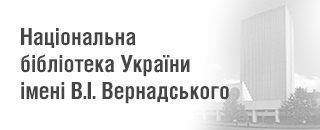GENDER-SPECIFIC ASPECTS OF HUMAN CAPITAL DEVELOPMENT IN UKRAINE: IMPLEMENTATION OF STATE POLICY
DOI:
https://doi.org/10.31470/2786-6246-2024-9-99-106Keywords:
gender, gender factors, demographic trends, state policy, state gender policy, human capital, migration processes, motivational mechanism of stimulation, national security, socio-economic policy, labor activity of the population, labor potentialAbstract
The paper presents the results of an analysis of gender-specific features of specific components of the system for the formation and utilization of human capital in Ukraine in the context of developing a theoretical foundation for improving the motivational mechanism of labor activity stimulation by the state. The survey considered value systems, norms and characteristics of male and female behaviour, lifestyle and ways of thinking, relationships, and the roles of women and men acquired during socialization.
The analysis revealed specific imbalances in the worldview of women regarding the prospects for utilizing personal labor potential, indicating the presence of problematic issues in state policy concerning the conditions for using the country’s human capital.
The necessity of considering gender characteristics in forming and utilizing human capital while implementing a motivational mechanism for stimulating citizens’ labor activity is substantiated.
The article proposes directions for state policy on incorporating gender-specific features, including shifting part of women's labor outside the household by developing affordable household services, shaping a new societal view on the role of each family member in domestic responsibilities, and creating new economic approaches to the production and marketing of household appliances that, by their functional design, can significantly reduce the share of women’s household labor in favour of professional activity.
References
Championing gender equality amidst the war in Ukraine. An update on UN women’s work in 2023. Retrieved from: www.unwomen.org [in English].
Zakon Ukrainy Pro ratifikaciyu Fakultativnogo protokolu do Konvenciyi pro likvidaciyu usih form diskriminaciyi shodo zhinok: pryiniatyi 5 chervnya 2003 roku № 946-IV1 [Law of Ukraine on the ratification of the Optional Protocol to the Convention on the Elimination of All Forms of Discrimination against Women from June 5 2003, № 946-IV1]. (2003). zakon.rada.gov.ua. Retrieved from https://zakon.rada.gov.ua/laws/show/946-15#Text [in Ukrainian].
Zakon Ukrayiny` pro zabezpechennya rivny`x prav ta mozhly`vostej zhinok i cholovikiv: pryiniatyi 8 veresnya 2005 roku № 2866-IV [Law of Ukraine on ensuring equal rights and opportunities for women and men from September 8, 2005, № 2866-IV]. (2005). zakon.rada.gov.ua. Retrieved from http://zakon.rada.gov.ua/laws/show/2866-15 [in Ukrainian].
Rozporyadzhennya Kabinetu Ministriv Ukrayiny` pro Strategiyu vprovadzhennya gendernoyi rivnosti u sferi` do 2030 roku ta operacijny`j plan zaxodiv na 2022-2024 roky` z yiyi realizaciyi : pryiniatyi 20 grudnya 2022 roku № 1163-р [Decree of the Cabinet of Ministers of Ukraine on the Strategy for the Implementation of Gender Equality in Education until 2030 and the Operational Plan of Measures for 2022-2024 for its Implementation from December 20, 2022, № 1163-р]. (2022). zakon.rada.gov.ua. Retrieved from https://zakon.rada.gov.ua/laws/show/1163-2022-%D1%80#Text [in Ukrainian].
Zakon Ukrayiny` pro zapobihannya ta protydiyu domashnʹomu nasylʹstvu (Vidomosti Verkhovnoyi Rady, 2018, № 5, st.35 [Law of Ukraine on Preventing and Combating Domestic Violence. Bulletin of the Verkhovna Rada, 2018, №5, Art. 35)]. (2018) zakon.rada.gov.ua. Retrieved from: https://zakon.rada.gov.ua/laws/show/2229-19#Text [in Ukrainian].
Shannon G. et el. (2019). Gender equality in science, medicine, and global health: where are we at and why does it matter? The Lancet, 393, 10171, 560–569. Retrieved from: https://www.thelancet.com/journals/lancet/article/PIIS0140-6736(18)33135-0/fulltext [in English].
Falk, A., & Hermle, J. (2018). Relationship of gender differences in preferences to economic development and gender equality. Science, 362, 6412. Retrieved from: https://www.science.org/doi/full/10.1126/science.aas9899 [in English].
Goetz, A.M., & Jenkins, R. (2018). Feminist Activism and the Politics of Reform: When and Why Do States Respond to Demands for Gender Equality Policies? https://doi.org/10.1111/dech.12389 [in English].
Berardo, D., Shehan, C., & Leslie, G. (1987). A Residue of Tradition: Jobs, Careers, and Spouse’s Time in House-work. Journal of Marriage and the Family, 49, 381–390 [in English].
Konrad, A.M. (2006). Cases in Gender & Diversity in Organizations. Thousand Oaks, CA: Sage [in English].
Dombrovsʹka, S.M., Moroz, V.M., Hrenʹ, L.M., Leonenko, N.A., &Moroz, S.A. (2018). Derzhavne upravlinnya zabezpechennyam hendernoyi rivnosti v Ukrayini [Public Administration of ensuring gender equality in Ukraine]. Kharkiv: NUCPU [in Ukrainian].
Tyurina, D.M. (2023). Suchasna realizatsiya hendernoyi polityky derzhavy v umovakh hlobalazatsiyi. [Modern implementation of gender policy of the state in the conditions of globalization]. Investytsiyi: praktyka ta dosvid, 22. Retrieved from: https://doi.org/10.32702/2306-6814.2023.22.203 [in Ukrainian].
Kisilova, K.V. (2023). Problematika gendernih stereotipiv suchasnogo suspilstva: pitannya teoriyi i praktiki [Issues of gender stereotypes in modern society: issues of theory and practice]. Naukovi zapiski. Seriya: pravo – Proceedings. Series: law, 14, 238–243. Retrieved from: https://www.publichne-pravo.com.ua/files/31/23.pdf [in Ukrainian].




